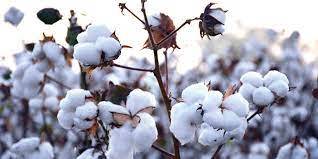
The textile sector of Pakistan is the eighth largest exporter in the global economy and contributes 8.5% of the total GDP and employs 38% of the labor force in Pakistan. On one side this sector is facing devastating impacts of climate change and on the other side, this sector is a large contributor to climate change.
Globally the estimated consumption of fibers for making cloth is 53 million tons of fibers which constitutes 10% of the emission of greenhouse gases and 20% wastage of water.
For sustainable growth of the textile sector in Pakistan, we need sustainability in 4Fs; fiber, factory, fashion, and foreign.
1) Fibers
Cotton fiber is the main input for the textile sector. In Pakistan its production and productivity have declined in the last few years, especially the 2022 flood which had detrimental effects on it. Major issues associated with cotton production in Pakistan are less resistance to climate change and water-intensive crops. Different agricultural-based economies have developed high-yield seeds which are climate-resistant and less water-intensive crops.
But in Pakistan, our policy promotes high water-intensive crops by providing subsidies on energy tariffs and addition of solar power for water tube wells. Instead of providing such type of subsidies, the government should allocate funds for seed engineering. Such initiatives definitely increase the productivity and production of cotton.
In Pakistan, fiber sustainability is required for two reasons, first in Pakistan cotton crop is highly water-intensive which is creating water scarcity issues and secondly, more climate-resistant seed production has become necessary to cope with climate change such as high heat waves and high rainfalls.
2) Factory
The factory is the central hub of textile manufacturing activities. The current developed nations call for a circular economy while they have used fossil fuels for their industrial growth. Besides less contribution to global emission, developing countries like Pakistan are facing a serious issue of climate change. In international stages and conferences like COP, both developed and developing nations sit together to discuss climate change issues.
Instead of conferences in air-conditional halls, developed nations need to understand developing countries' ground realities and provide practical assistance to developing countries for their sustainable economic growth. In the case of textiles most developed nations export their used cloth to Pakistan like less developed nations. Developed nations should take measures and ensure before exports of used cloths they are properly re-washed and free from hazardous chemicals.
As developed nations have developed highly efficient machinery and techniques for their industries, they need to provide technical assistance and labor training programs to developing nations so that they can move towards green energy, and highly efficient techniques so that sustainable industrial growth can become possible for them.
Every year the government of Pakistan provide millions of dollar in subsidies to input providers such as gas subsidies to fertilizer companies, and energy tariff for agricultural tube wells. The government of Pakistan needs to shift its priority from subsidies to allocation of more budget to Research and Development since without it sustainable growth is not possible.
3) Fashion
Sustainable fashion means the entire process of textile from production to consumption should be eco-friendly. In Pakistan high volumes of water and chemicals are used during the production and manufacturing phase, but the real problem is the discharge of highly chemical-contaminated water into fresh water causing water pollution.
The government of Pakistan should develop a water-retreatment policy for industry so that water waste can be recycled. During the packaging process, different types of chemicals are also used which are hazards to human health. Proper health proactive mechanisms should be adopted in industries that are according to International standards.
In such a way, human productivity and efficiency will also improve and will definitely improve the productivity of industries/firms. Consumers are also important stakeholders in sustainable fashion, but in the case of Pakistan, most people are unaware about this concept. A large-scale mass awareness campaign should be initiated in this regard.
4) Foreign
After globalization and trade openness movement of goods and services across borders became common. The developing countries are suffering more than benefitting from globalization and trade openness. Like e-waste, Pakistan is becoming a dumping place for post-textile waste.
According to studies Pakistan has imported $46 million of used cloth from the European Union. The lack of regulated mechanisms for re-use cloth such as lack of Recycled Polyester Staple Fiber, Digital Product Passport system, imported used clothes caused serious impacts on human health and the environment.
Currently, in Pakistan the re-shaping and re-washing process of used fabric is informal and has a high usage of water and chemicals that cause soil and water pollution. Hygiene and safety of laborers is almost equal to null causing the labour force to suffer from health related issues.
For eco and environment-friendly growth of the textile sector in Pakistan, the textile sector needs to consider the 4F framework and align their whole process with international standards and protocols so that they can more contribute constructively to the economic growth of Pakistan.

